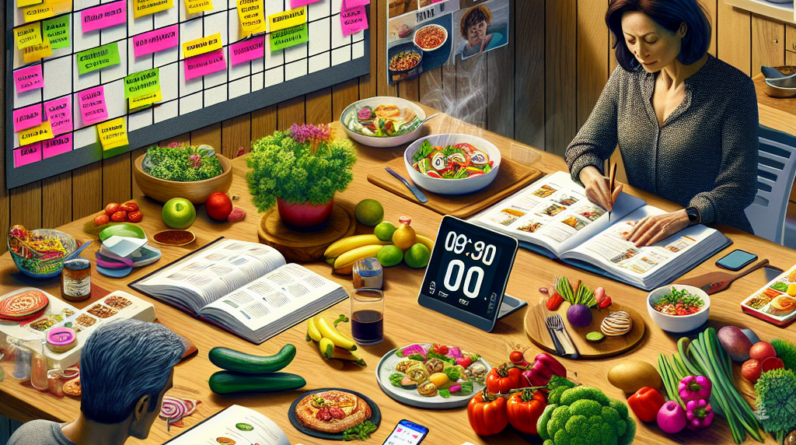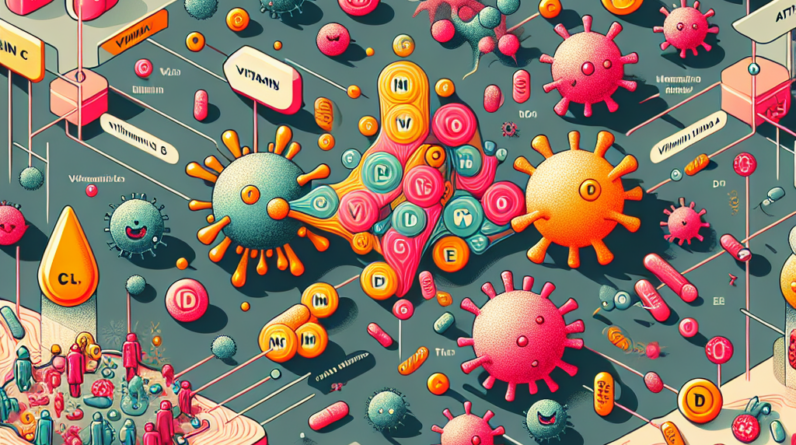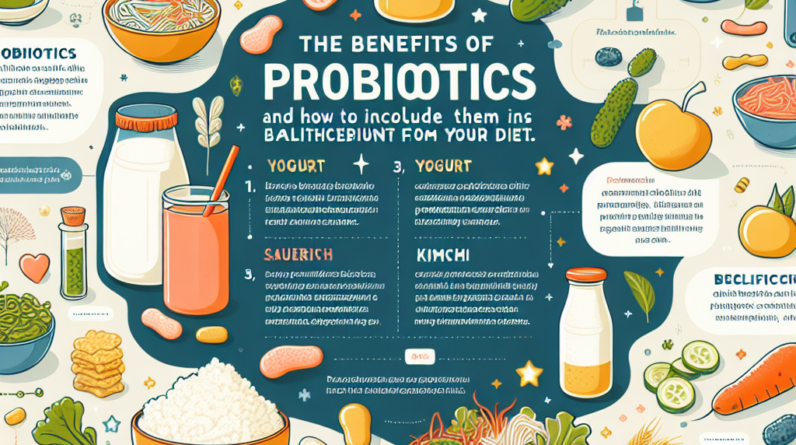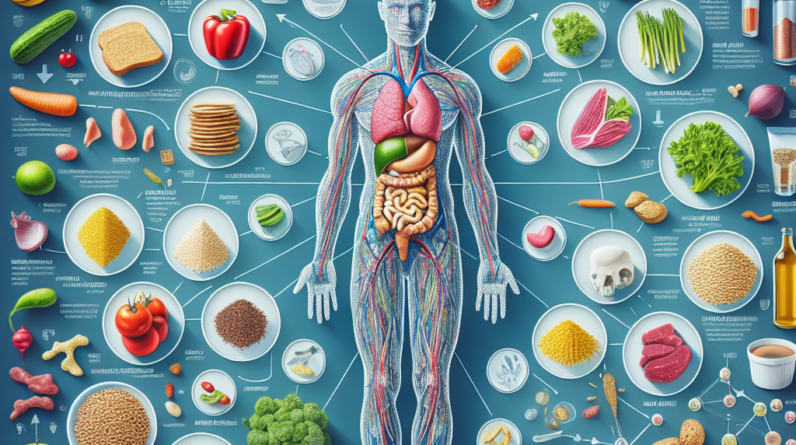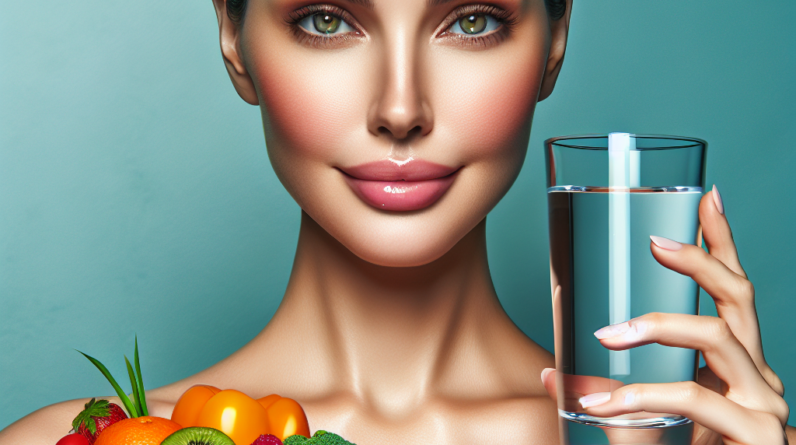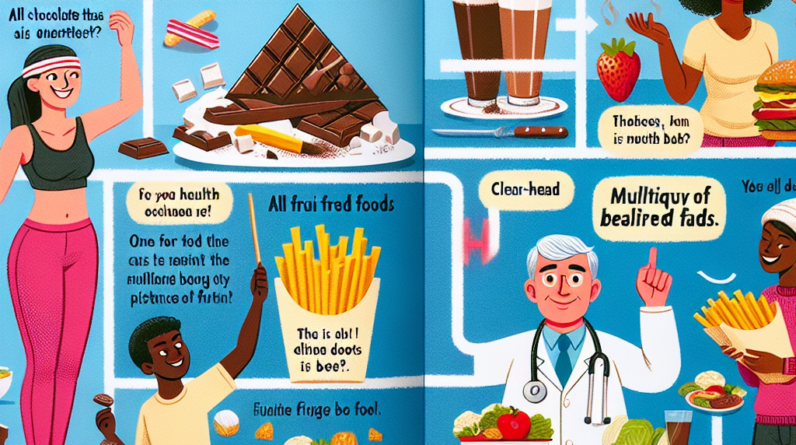
The Myth of ‘Fat-Free’ Foods
Understanding the Basics
Okay, let’s dive in! The first thing you should know about ‘fat-free’ foods is that they aren’t always the healthy choice they’re marketed to be. Many people think that if a product says “fat-free,” it’s a free pass to load up on it, but that’s not the case. In reality, manufacturers often replace fat with sugar or other fillers to maintain taste.
Get a Huge Discount and Bonus! Try for 90 Days Risk Free
This means that while you might be skipping out on fat, you could be taking in a whole bunch of extra calories from sugar. For me, I always check the label for the ingredient list. If I see a bunch of ingredients I can’t pronounce, I’m usually out.
Think about it this way: fat can actually be beneficial for your body! Healthy fats from sources like avocados, nuts, and olive oil can help you feel full longer and are essential for nutrient absorption. So next time you’re scanning the grocery aisle, keep this in mind.
The Flavor Factor
When they strip away the fat, something’s gotta give in the taste department. That’s where added sugars and artificial flavorings often come into play. These additives may make the food more palatable but can lead to cravings and overeating later on!
From my experience, I’ve found that many people who reach for those ‘fat-free’ treats often find themselves hungry not long after. This is because their bodies are looking for the satisfactions that come from healthy fats.
If you love a certain food, go for moderation rather than elimination. Opt for full-fat versions that can provide a more satisfying eating experience. You’ll find that indulging now and then can keep your cravings at bay.
Listening to Your Body
At the end of the day, it’s about listening to your own body. Everyone’s needs are different, and while some may thrive on low-fat diets, others might feel deprived. It’s essential to be in tune with what works for you.
After trying out various diets, I realized that restricting fats made me feel cranky and unsatisfied. Instead, when I incorporated healthy fats into my meals, I felt more energized and happy!
So happiness is key, folks. Remember, you don’t have to skip fats to be healthy. Embrace the right ones, and your body will thank you!
Get a Huge Discount and Bonus! Try for 90 Days Risk Free
Carbs Are the Enemy
The Good vs. Bad Carbs Debate
Next up is the concept that carbs are the enemy. Now, I don’t know about you, but I love a good slice of bread or a plate of pasta. The reality is, not all carbs are created equal. Whole grains, fruits, and vegetables provide essential nutrients and should be part of a balanced diet.
However, processed sugary carbs are a different story. Those can wreak havoc on your body and lead to energy crashes. I try to make a habit of sticking to whole-food sources that give me a steady energy supply.
It’s like investing in your health, you know? When I choose wholesome carbs, like sweet potatoes or quinoa, I feel fueled and ready to tackle the day. And that’s what it’s all about.
Carbs and Weight Gain
Many believe that cutting out carbs is the golden ticket to losing weight, but that’s a myth! It’s not about carbs per se, but rather your overall caloric intake. If you’re eating more calories than you burn, regardless of whether they come from carbs, protein, or fats, you’re likely to gain weight.
Need a Serious Energy BOOST? Huge Discount Try for 90 Days Risk Free
I’ve tried low-carb diets and didn’t see lasting results. What I learned is that balance is key! When I focus on moderation and include a variety of foods, my weight stays in check naturally.
So don’t fear carbs—embrace them! Just be smart about the choices you make. Your body will appreciate the nutrients and energy they provide.
Glycemic Index Awareness
Understanding the glycemic index (GI) can be a game-changer. Foods with a high GI can spike your blood sugar levels, leading to that dreaded crash. It’s something I keep in mind when planning my meals!
By opting for low-GI foods like whole grains and legumes, I find that I maintain stable energy throughout the day. My cravings also seem to lessen. It’s pretty wild how much food choices can impact your mood and overall energy levels.
So, challenge yourself to learn about the glycemic index and make those informed decisions. Your body and brain will thank you!
All Things Processed Are Bad
The Gray Area of Processed Foods
It’s a common notion that all processed foods are unhealthy, but that’s not entirely accurate. Sure, there are plenty of processed foods loaded with unhealthy ingredients, but the truth is some processed foods deliver convenience and nutrition.
For example, canned beans and frozen vegetables can save you loads of time while still contributing valuable nutrients to your plate. I keep a stash of these essentials in my pantry for quick meals that are still nutritious.
Easy meals that don’t require hours in the kitchen? Count me in! It’s all about finding a healthy balance and being savvy with your choices.
Ingredient Confusion
Reading labels can be a bit overwhelming given how many buzzwords and claims are out there. But here’s an insider tip: focus on ingredient quality rather than whether it’s processed or not. If a product has a short list of ingredients and you can recognize them, you’re probably on the right track.
I often find that the simpler the ingredient list, the better it generally is. Which is why I like scoping out items with natural ingredients. It just makes sense for my health journey.
Remember that not all processed foods deserve to go on your ‘no’ list. Choose those that are minimally processed to maintain their nutritional benefits. You got this!
Understanding Food Labels
Nutrition labels are a gold mine of information if you learn how to navigate them! Check for items like added sugars, sodium levels, and other hidden nasties. My method? I usually try to find products with low sugar and sodium content.
Good Health Solution is Easier Than Most People Think!
Take a Look for Yourself!
If you’re ever uncertain, don’t hesitate to reach out to a dietitian or nutritionist for guidance. They can help demystify those labels and help you make informed decisions tailored to your needs.
At the end of the day, be an empowered consumer! Knowledge is power when it comes to food and health.
Only Fresh Foods Are Healthy
Embracing Frozen & Canned Options
I used to think that fresh was the only way to go, but let me tell you, frozen and canned foods can be super nutritious, too! Many frozen fruits and vegetables are picked and frozen at their peak freshness, locking in their nutrients.
Plus, they have a longer shelf life, which can save you money and reduce waste. On busy days, I find it easy to reach for some frozen spinach to toss into my omelet. It’s a simple way to get those greens without the fuss!
So don’t shy away from those frozen shelves. They can be a lifesaver when life gets hectic.
Nutrition in Every Stage
You’d be surprised to know that canned foods can still pack a punch in terms of nutrition. Beans, tomatoes, and other canned options retain their vitamins and minerals despite being processed.
On days when I want to whip up a quick chili, I grab a couple of cans, and I know I’m still fueling my body well. Just check that there aren’t any added preservatives or excessive sodium. It’s a little homework that goes a long way!
Nutrition covers all bases. Just like fresh foods, canned and frozen varieties have their place in our diets. It’s all about variety and making informed choices.
Quality Over Freshness
The bottom line is this: it’s not strictly about how fresh a food is, but rather its quality. Foods that count as nutrient-dense are the real MVPs! I aim for a diet rich in vitamins, minerals, and fiber, regardless of whether the foods are fresh or frozen.
So, when you’re planning your meals, keep this in mind. Quality food options can truly make a difference. Seasonal produce has its perks, but so do those versatile frozen veggies!
Ultimately, I say it’s all about balance and making choices based on what’s achievable for your lifestyle.
Trendy Diets Are Always Better
Understanding Diet Fads
Oh, the world of trendy diets can get quite overwhelming! From keto to paleo, gluten-free, and everything in between, it’s easy to get caught up in the hype. But let’s be real—what works for one person may not work for another.
I’ve tried out a couple of these diets, and while they might have shown results, I found them tough to stick with in the long run. The key is finding something enjoyable that feels sustainable for your lifestyle.
A diet just shouldn’t feel like a punishment! Listen to your body and identify what makes you feel best. That’s where you’ll find your sweet spot.
Finding What Works for You
Everyone’s body is unique, and what might be great for one person could hurt another. It’s vital to tailor your diet to your personal preferences and lifestyle. I used to just follow what was trending without thinking, but over time I’ve started to embrace what makes me feel good.
Experiment with different foods and listen to your body. For instance, I have a friend who thrives on a plant-based diet, while another feels great with a higher protein intake. Finding that balance is a lifelong journey.
Sticking to a rigid “diet” isn’t the way anymore. Focus on balanced, wholesome choices, and you’ll find what feels right for you.
Educating Yourself
Lastly, always educate yourself about nutrition. Read up on scientific studies, follow credible sources, and ask questions. Keep your mind open! By expanding your knowledge, you empower yourself to make informed decisions.
I’ve listened to podcasts, read articles, and even attended workshops—anything that helps me understand nutrition better. Plus, engaging with a community can bring fresh insights and support!
In a world full of diet trends, remember that the ultimate goal is to nourish your body and mind. It’s about what feels good for you, not just what’s popular.
Frequently Asked Questions
1. Are all fats bad for you?
Nope! Healthy fats are essential for your body. Focus on unsaturated fats like those found in avocados, nuts, and olive oil.
2. Can I eat carbs and still lose weight?
Absolutely! It’s about balance. Incorporate healthy carbs like whole grains and veggies while maintaining your overall caloric intake.
3. Is processed food always unhealthy?
Not necessarily. Some processed foods like frozen vegetables and canned beans can be nutritious options—just read labels carefully!
4. Do I need to avoid all trendy diets?
Not at all! Just be sure to choose an approach that feels sustainable for you. The best diet is one that aligns with your lifestyle and preferences.
5. How can I educate myself about nutrition?
Start by reading reputable articles, following qualified dietitians on social media, listening to nutrition podcasts, and attending workshops for more insights!



